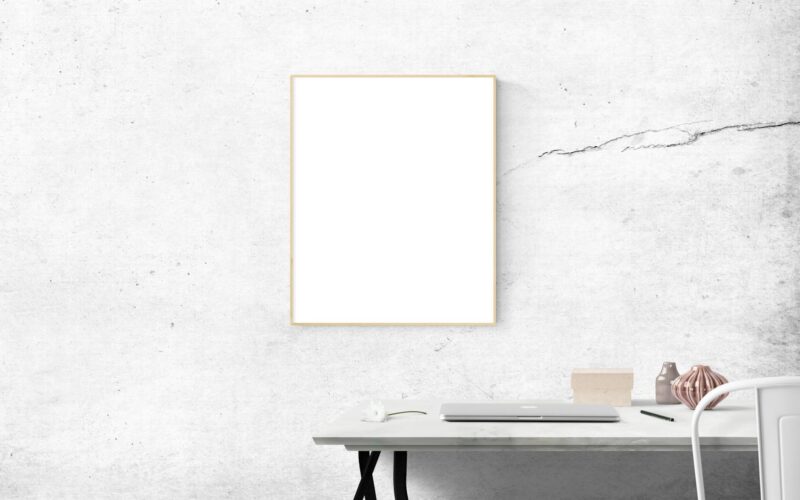The Dangers of Minimum Payments: Why Paying Off Your Credit Card Balance is Important
Credit cards provide flexibility and convenience, but they can also lead to serious financial pitfalls if not managed wisely. One of the most deceptive practices in credit card usage is making only the minimum payment. This article delves into the dangers of minimum payments and the importance of paying off your credit card balance timely.
Understanding Minimum Payments
Every month, your credit card issuer provides a statement detailing your outstanding balance and the minimum payment required. Typically, the minimum payment is a small percentage of your total balance, or a fixed dollar amount, whichever is higher. For example, if your balance is $1,000, your minimum payment might be $25.
While making the minimum payment may seem convenient, it can lead to long-term financial issues. Credit card companies design this payment structure to maximize their profit from interest charges. The longer you carry a balance, the more interest accrues, often at exorbitant rates that can exceed 20% annually.
Moreover, paying only the minimum keeps you in a cycle of debt. If you continue to charge new purchases while only making minimum payments, your balance can swell, eventually creating a mountain of debt. This cycle can be difficult to escape, trapping you in a situation where you owe more than you might initially realize.
The Impact of Interest on Minimum Payments
When you only pay the minimum amount due, most of your payment goes towards interest, not the principal balance. This can lead to a dramatic increase in the total amount you pay over time. For instance, if you have a $5,000 balance with an interest rate of 18%, and you only make the minimum payment, it could take over 10 years to pay off the balance, and you may end up paying nearly double the original debt due to accrued interest.
This phenomenon of compounding interest can significantly diminish your financial health. The longer your debt remains unpaid, the more you are likely to suffer from interest charges that chip away at your overall financial stability. This reality underscores the importance of understanding how interest rates work in conjunction with minimum payments; ignorance can lead to financial devastation.
Effects on Credit Score
Your credit score is a crucial number affecting your ability to borrow money, apply for loans, or secure favorable interest rates. One critical aspect of your credit score is your credit utilization ratio, which is the percentage of your available credit that you are using. Ideally, you want this ratio to be below 30%.
When you make only minimum payments, your credit utilization ratio tends to remain high. Higher utilization can lead to a lower credit score, making it more challenging to obtain credit in the future or resulting in higher interest rates for loans. This creates a vicious cycle: as your credit score drops, your financial options narrow, making it even harder to climb out of debt.
Furthermore, late payments can adversely affect your credit score. If you miss a payment due date while being caught in the minimum payment trap, the repercussions can be severe, including late fees and additional damage to your credit profile. Therefore, consistently making only minimum payments can lead to long-term consequences that may haunt you for years.
Psychological and Emotional Toll
Financial stress has significant psychological repercussions. When you are in debt and only manage to make minimum payments, you may experience anxiety, stress, and even depression. The burden of financial uncertainty can affect your relationships, job performance, and overall quality of life.
Being trapped in a cycle of debt makes it challenging to focus on long-term goals such as saving for retirement, buying a home, or funding education. The relentless worry over monthly bills can prevent you from enjoying life and pursuing new opportunities. Furthermore, the emotional toll can lead to poor financial decisions, driving you further into debt rather than helping you find a way out.
Addressing these emotional factors requires a proactive approach to your financial situation. The first step is acknowledging that making only minimum payments is not a sustainable strategy. Setting realistic budgeting goals and prioritizing debt repayment can improve not only your financial situation but also your emotional well-being.
Strategies for Paying Off Your Balance
Understanding the dangers of minimum payments is one thing; executing a strategy to pay off your balance is another. Here are some effective strategies to consider:
-
Create a Budget: Begin by assessing your monthly income and expenses. Allocate a specific amount for debt repayment and stick to it. This can help you pay off more than the minimum each month.
-
Use the Debt Avalanche or Snowball Method: The Debt Avalanche method involves paying off debts with the highest interest rates first, while the Snowball method focuses on paying off the smallest debts first for psychological satisfaction. Choose the method that resonates with you.
-
Consider Balance Transfers: Some credit cards offer 0% interest balance transfers for a limited time. This can be a valuable tool for avoiding interest as you work to pay down your debt.
-
Increase Your Payments: Whenever possible, increase your payment amount. Even small additional payments can significantly reduce the time taken to pay off your balance and save you on interest costs.
- Educate Yourself: Understanding finance and credit management is essential. Consider reading books, attending seminars, or consulting financial advisors to empower yourself with knowledge.
By actively engaging with your financial situation and implementing smart strategies for repayment, you can avoid the pitfalls of minimum payments and regain control over your financial future.
The Importance of Building an Emergency Fund
One effective way to shield yourself from the cycle of debt is by establishing an emergency fund. This fund acts as a financial safety net, covering unexpected expenses such as medical bills, car repairs, or sudden job loss. By having an emergency fund, you reduce the risk of relying on credit cards in emergencies, thus avoiding accumulating more debt. Ideally, your emergency fund should cover three to six months’ worth of living expenses, providing enough buffer to handle most unforeseen circumstances.
Utilizing Financial Tools and Apps
In today’s digital age, various financial tools and apps can help you manage your finances more effectively. Applications like Mint, YNAB (You Need a Budget), or Personal Capital can provide insights into your spending habits, track your debt repayment progress, and offer budgeting assistance. By leveraging technology, you can set reminders for payments, visualize your financial goals, and receive alerts when you exceed your budget. This increased awareness can further help you avoid falling back into the trap of making minimum payments.
The Role of Credit Counseling Services
If you find yourself overwhelmed with credit card debt, seeking help from a credit counseling service can be invaluable. These organizations provide financial education, budgeting assistance, and debt management plans tailored to your needs. A certified credit counselor can work with you to develop a debt repayment strategy, negotiate with creditors on your behalf, and even help lower your interest rates. This support can help you regain control over your finances and set a course toward becoming debt-free.
The Power of Financial Literacy
Financial literacy plays a crucial role in preventing credit card debt. Understanding concepts such as interest rates, credit utilization, and the impact of minimum payments on your finances can empower you to make informed decisions. Engaging in personal finance education through courses, podcasts, or reading materials can provide you with tools to manage your money more effectively. Increased financial literacy helps you recognize the long-term implications of your spending habits, enabling you to create a solid plan for paying off debt and achieving financial goals.
Investing in Your Financial Future
While prioritizing debt repayment is crucial, it is equally important to consider investing for your future. Once you’ve stabilized your finances by reducing debt, start directing surplus funds towards investment opportunities. Whether it’s contributing to a retirement account, purchasing stocks, or investing in real estate, the earlier you begin investing, the more you can leverage the power of compound interest for long-term growth. A balanced approach to both debt repayment and investing can significantly improve your financial health over time.
Summary
Managing credit card debt is more complex than making minimum payments; it requires proactive strategies and a comprehensive understanding of personal finance. Establishing an emergency fund can prevent the reliance on credit in times of crisis, while financial tools and apps can help you stay on top of your budget and progress toward repayment. Seeking help from credit counseling services can offer valuable guidance when overwhelmed, and increasing your financial literacy will empower you to make informed decisions regarding your spending. After tackling debt, consider investing for the future to secure your financial health and leverage compounding growth.
The journey to financial stability begins with understanding and avoiding the pitfalls of minimum payments, paving the way for a brighter financial future.
#Dangers #Minimum #Payments #Paying #Credit #Card #Balance #Important
















